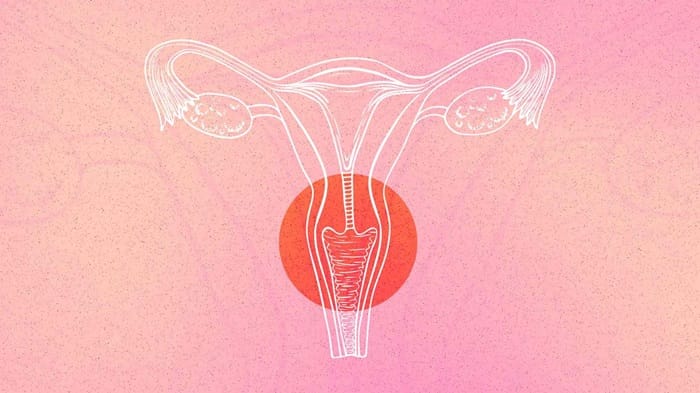Cervical Cancer is a cancer that starts in the cervix of a woman. Almost all cervical cancers are caused by a virus called Human Papillomavirus (HPV) that spreads through sexual intercourse. This is considered to be a prevalent cancer affecting women worldwide.
The early detection of common symptoms associated with cervical cancer can help in effective treatment. To understand the symptoms, awareness about the same is crucial. Basic regular screening, such as Pap smears and HPV testing, plays a vital role in detecting precancerous changes in the cervix before they develop into cancer.
In this blog, Dr Pankhuri Gautam aims to educate her readers regarding the symptoms and risks of cervical cancer and its screening. As a top gynaecologist in Jaipur, with her extensive research and career in treating cancer, she can help with Cervical Cancer.
Understanding Cervical Cancer
Cervix cancer or cervical cancer starts in the cervix of the woman, which is the lower part of the uterus connecting to the vagina, when the normal cells in the cervix grow uncontrollably and form a mass which is known as a tumour.
Two main types of cancer happen in the cervix-
- Squamous cell carcinomas—These cancers occur due to the overproduction of squamous cells.
- Adenocarcinomas- It develops in the glands that line your organs. Typical forms of adenocarcinoma include breast, stomach, prostate, lung, pancreatic, and colorectal cancers.
Current statistics that highlight the prevalence and impact of cervical cancer-
- According to WHO– Cervical cancer is the fourth most common cancer in women globally, with around 660,000 new cases and around 350,000 deaths in 2022.
- The American Cancer Society’s estimates for cervical cancer in the United States for 2024 are:
- About 13,820 new cases of invasive cervical cancer will be diagnosed.
- About 4,360 women will die from cervical cancer.
- According to the BGI report– Cervical cancer is the fourth most prevalent cancer among women on a global scale, comprising approximately 604,000 new cases and 342,000 deaths worldwide.
Symptoms of Cervical Cancer
Some of the common symptoms of Cervical Cancer include-
- Abnormal Vaginal Bleeding- This includes bleeding after sexual intercourse, heavier or more extended menstrual periods, bleeding even after menopause.
- Unusual Vaginal Discharge- A discharge with a foul smell or looks unusual ( pink and watery).
- Pelvic Pain- When the muscle around the pelvic area pains during intercourse or pain that is not associated with the menstrual cycle around the pelvic region, it can be a symptom of cervical cancer.
- Pain During Urination- Increased need to urinate or discomfort or burning sensation.
- Unexplained Weight Loss- When you start to lose weight without trying to lose it or going on any diet, it can be considered an alarming concern.
- Fatigue- When you feel too tired, factors like work stress or low immunity cannot be explained.
- Back Pain- Lower back pain, especially if it’s persistent.
It can be considered a symptom when you experience swelling or pain in both legs that is not due to physical exertion, long walks, or any other medical condition.
What are the Risk Factors that can Cause Cervical Cancer?
Several risk factors can cause Cervical Cancer. Some of these factors include-
Human Papillomavirus (HPV) Infection-
- The most significant risk factor for cervical cancer.
- Certain strains of HPV, particularly HPV-16 and HPV-18, are strongly linked to cervical cancer.
Multiple Sexual Partners
- If you have multiple sexual partners, it can increase the risk of having HPV infection.
- Also, if you start engaging in sexual activity at a young age, the risk of having the infection increases.
Other Sexually Transmitted Infections (STIs)
- Having STIs, such as gonorrhoea, syphilis, and HIV/AIDS, can increase the risk.
Weak Immune System
- If you have a weak immune system due to underlying issues such as HIV/AIDS or any other medications that lead to a depleted immune system, the chances of having cervical cancer increase.
Smoking
- Women who smoke are about twice as likely as non-smokers to get cervical cancer.
Long-term Use of Oral Contraceptives
- If a woman has been using oral contraceptives for more than five years consistently, the risk of having cancer increases.
Socioeconomic Factors
- Women who do not have access to proper healthcare services or limited access may not get the chance to get any screening done for an early diagnosis, leading to advanced-stage cancer.
Exposure to Diethylstilbestrol (DES)
- DES is a hormonal drug which was used between 1940 and 1971 to prevent miscarriage. Women who have used this drug are more likely to be at an increased risk of having cancer.
Family History of Cervical Cancer
- If you have a history of cancer in your family, the chances of having cervical cancer increase.
Age
- Cervical cancer risk increases with age, particularly after age 30.
Screening and Diagnosis of Cervical Cancer
There are proper screening tests that can help in the diagnosis of Cervical Cancer. These screening methods include-
Screening Methods
Pap Smear (Pap Test)
- The Pap Smear Test involves collecting the cells from the cervix area.
- A Pap smear can also detect changes in your cervical cells that suggest cancer may develop in the future.
- Doctors generally recommend repeating Pap testing every three years for women between 21 to 65 years of age.
HPV DNA Test
- The HPV test is used to check for infection with HPV types associated with cervical cancer.
- HPV type 16 and HPV type 18 are most closely related to cervical cancer.
Visual Inspection with Acetic Acid (VIA)
- The cervix is coated with acetic acid (vinegar), which causes abnormal cells to turn white and become visible to the naked eye.
Diagnostic Methods
Multiple diagnostic methods can help detect Cervical Cancer or help understand its extent.
Colposcopy
- This test is usually conducted if HPV test results are abnormal.
- This procedure uses a magnifying device inserted to examine the cervix closely.
Biopsy
- A small tissue is collected from the cervix area to conduct further tests.
There are different types of biopsies:
- Punch Biopsy: A small piece of cervical tissue is removed.
- Endocervical Curettage (ECC): Cells are scraped from the cervical canal.
- Cone Biopsy (Conization): A more significant, cone-shaped tissue sample is removed, often under general anaesthesia.
Loop Electrosurgical Excision Procedure (LEEP)
- LEEP uses a wire loop heated by electric current.
- It removes cells and tissue in a woman’s lower genital tract.
Imaging Tests
- MRI and CT Scans are conducted if cervical cancer is detected.
- These imaging tests help determine the extent of the tumour.
Follow-Up Tests
Some of the follow-up tests that doctors recommend to get a surety regarding the presence of cancer include-
Endocervical Curettage (ECC)
- A tissue is taken off from the cervical canal for further testing.
- The tissue is tested for any signs of disease.
HPV Typing Test
- If an HPV infection is found, an HPV typing test can determine if a high-risk strain of the virus causes the disease.
Conclusion
Getting diagnosed with cancer can be both shocking and scary. But with the help of early diagnosis, cervical cancer can be treated. By looking out for symptoms such as unusual discharge, foul smell, heavy bleeding, and unexplained weight loss, an early scan can help detect and get treatment at the right time.
If you are over 30, getting regular scans can prove very useful. The above-explained details will help you understand the risk factors and treatment options associated with Cervical Cancer. Get your scan done and consult a specialist like Dr. Pankhuri Gautam for proper treatment and guidance.






